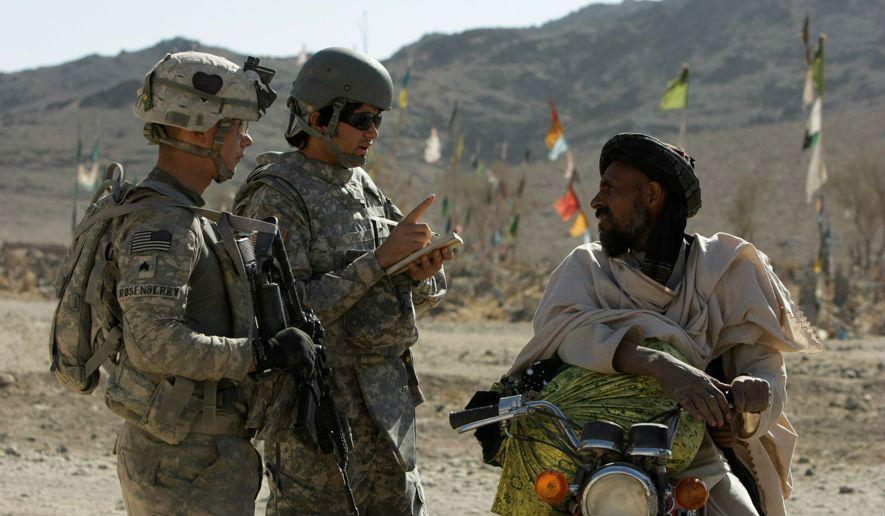Afghans who worked for US armed forces told not to apply for special visas
It is unclear if the move is connected to Donald Trump's revised travel ban

Your support helps us to tell the story
From reproductive rights to climate change to Big Tech, The Independent is on the ground when the story is developing. Whether it's investigating the financials of Elon Musk's pro-Trump PAC or producing our latest documentary, 'The A Word', which shines a light on the American women fighting for reproductive rights, we know how important it is to parse out the facts from the messaging.
At such a critical moment in US history, we need reporters on the ground. Your donation allows us to keep sending journalists to speak to both sides of the story.
The Independent is trusted by Americans across the entire political spectrum. And unlike many other quality news outlets, we choose not to lock Americans out of our reporting and analysis with paywalls. We believe quality journalism should be available to everyone, paid for by those who can afford it.
Your support makes all the difference.Afghan citizens who frequently risked their lives working for the US government and military, have been told they can no longer apply for special visas to the US - even though their country was not among those listed on Donald Trump’s travel ban.
Democratic senator Jeanne Shaheen said Afghans applying for what are called Special Immigrant Visas, were being told by the US Embassy in Kabul that applications were no longer being accepted.
The US State Department confirmed on Thursday it will soon run out of visas for interpreters and other Afghans who have worked for the US government since the 2001 US and UK invasion of the country, carried out in the aftermath of the 9/11 attacks.
Ms Shaheen said up to 10,000 visas were still in the process of being processed. “It’s both a moral and practical imperative that congress right this wrong immediately,” she said in a statement.
Reports suggest it is unclear whether the suspension of the programme is connected to the president’s revised travel ban, which freezes entry to the US for citizens of six Muslim majority countries. The order, which is scheduled to come into effect on March 16, also mandates that the number of refugees allowed into the US should be cut in half to just 50,000 people.
Ms Shaheen and Republican Senator John McCain led a failed effort last year to pass legislation extending to 4,000 more people an existing special immigrant visa programme for Afghans who assisted US forces, often risking their lives, Reuters said.
In Afghanistan, where the Taliban has steadily expanded its insurgency and where government forces now control less than 60 per cent of the country, there has been deep concern among local contractors working for international forces.
“Most of those working with foreigners are in trouble with their relatives, villagers and even family members,” said one translator.
He declined to give his name because his visa has not yet been granted.
The Taliban has captured biometric equipment to allow it to identify staff working for the Western-backed government and international forces, heightening the risk for those on official payrolls.
“I cannot go to my home and it has been two years now,” the translator said. “If they don't give us a visa, we will be killed or in big trouble, especially once foreigners leave Afghanistan.”
The International Refugee Assistance Project at the Urban Justice Centre in New York, said it had been informed on Thursday that Afghans had been told their applications were no longer being accepted.
“Our worst fears are proving true,” said Betsy Fisher, the group’s policy director. “This devastating development means that thousands of trusted allies will remain in danger, waiting for congress to allocate visas that were clearly needed months ago.”
Join our commenting forum
Join thought-provoking conversations, follow other Independent readers and see their replies
Comments